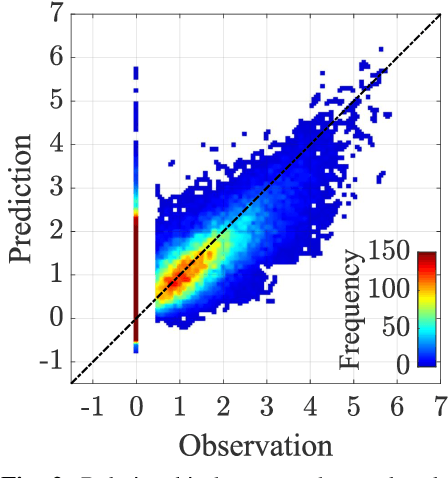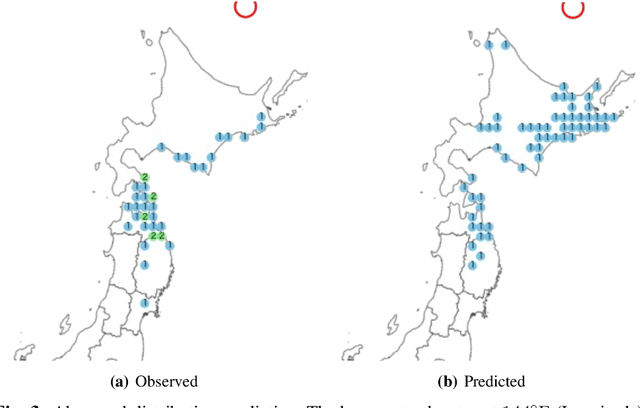Kakeru Miyazaki
Data-Driven Prediction of Seismic Intensity Distributions Featuring Hybrid Classification-Regression Models
Feb 03, 2024Abstract:Earthquakes are among the most immediate and deadly natural disasters that humans face. Accurately forecasting the extent of earthquake damage and assessing potential risks can be instrumental in saving numerous lives. In this study, we developed linear regression models capable of predicting seismic intensity distributions based on earthquake parameters: location, depth, and magnitude. Because it is completely data-driven, it can predict intensity distributions without geographical information. The dataset comprises seismic intensity data from earthquakes that occurred in the vicinity of Japan between 1997 and 2020, specifically containing 1,857 instances of earthquakes with a magnitude of 5.0 or greater, sourced from the Japan Meteorological Agency. We trained both regression and classification models and combined them to take advantage of both to create a hybrid model. The proposed model outperformed commonly used Ground Motion Prediction Equations (GMPEs) in terms of the correlation coefficient, F1 score, and MCC. Furthermore, the proposed model can predict even abnormal seismic intensity distributions, a task at conventional GMPEs often struggle.
Prediction of Seismic Intensity Distributions Using Neural Networks
Aug 16, 2022



Abstract:The ground motion prediction equation is commonly used to predict the seismic intensity distribution. However, it is not easy to apply this method to seismic distributions affected by underground plate structures, which are commonly known as abnormal seismic distributions. This study proposes a hybrid of regression and classification approaches using neural networks. The proposed model treats the distributions as 2-dimensional data like an image. Our method can accurately predict seismic intensity distributions, even abnormal distributions.
 Add to Chrome
Add to Chrome Add to Firefox
Add to Firefox Add to Edge
Add to Edge